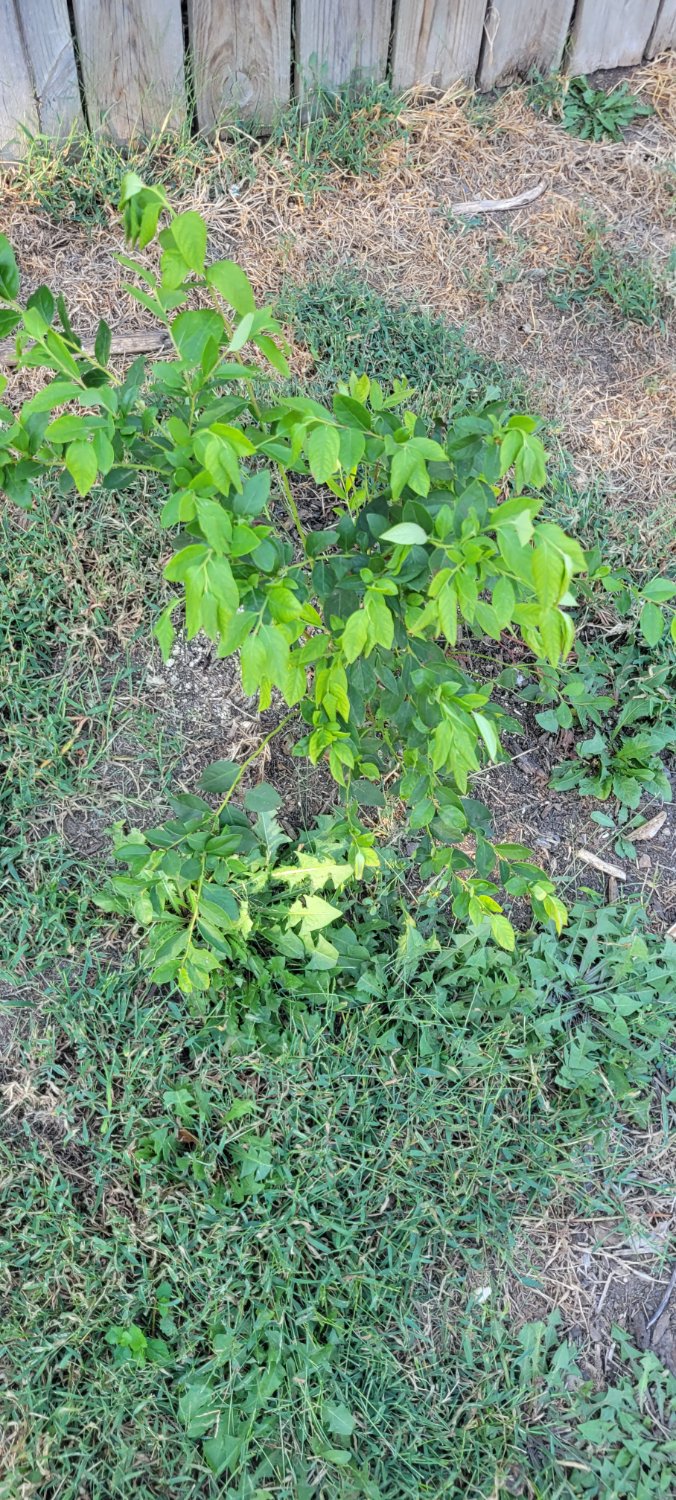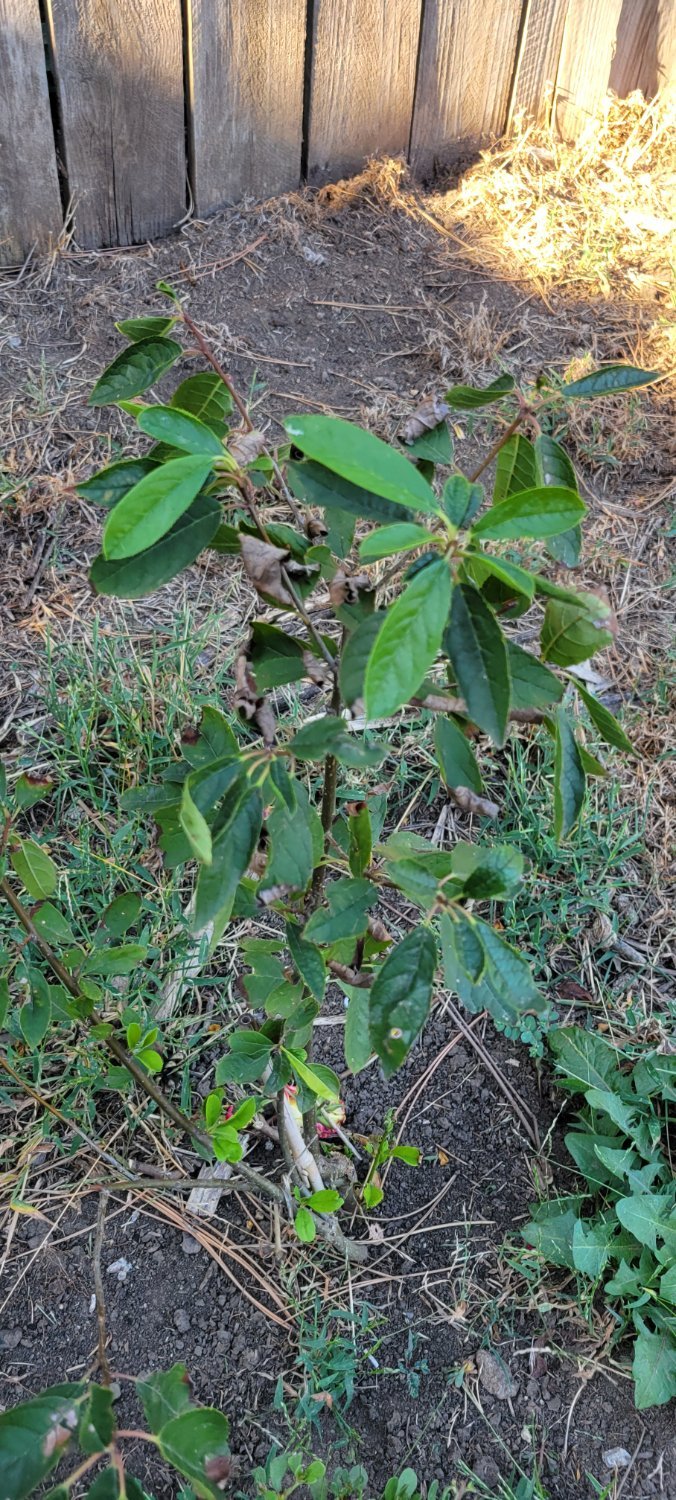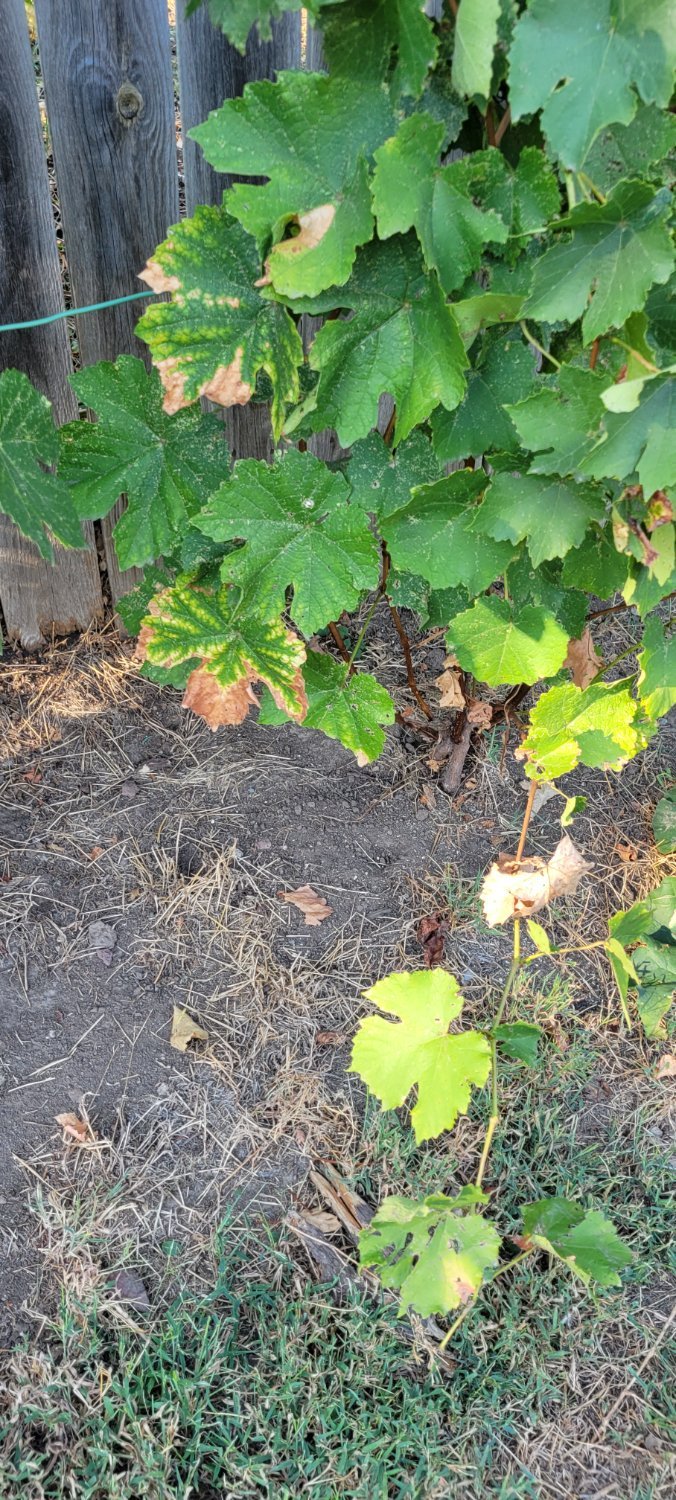I've been having trouble with several of my plants the last couple of years. I've planted almost 4 blueberry bushes, grapevine and some winterberries that do well for several months then seem to start growing very slow and doing poorly.
Our soil is more of a silty soil that doesn't drain well so I did fill the holes in with good potting soil with compost and covered with a thin layer of the silty soil and try to water about once a week. The last year I had 3 blueberry bushes that I planted early spring that put out some new growth and then started to grow very slow and later died In early fall and didn't come back the next year. I've tried to fertilize and add gardening Sulphur to them to help acidity the soil but no matter what I do everything slowly starts to die. I've noticed this year the leaves on the grapevines and blueberries appears to have chlorosis and the winterberries' leaves are turning brown and curling up. It's still ~90 degrees out so I doubt anything should be going dormant yet (I live in zone 5b). I even tried to buy special blueberry fertilizer to make sure I wasn't missing anything important but I'm still having issues.
Here is the blueberry bush:

The raspberries:

And one of the winterberry bushes:

Does this look like iron defiency or potentially some other sort of issue? At this point I'm considering getting my soil tested but if anyone has any advice let me know.




I would take soil samples and find your local Cooperative Extension. They can test your soil and tell you what it is lacking or has too much of. Once you know then you can amend your soil and see if that helps.